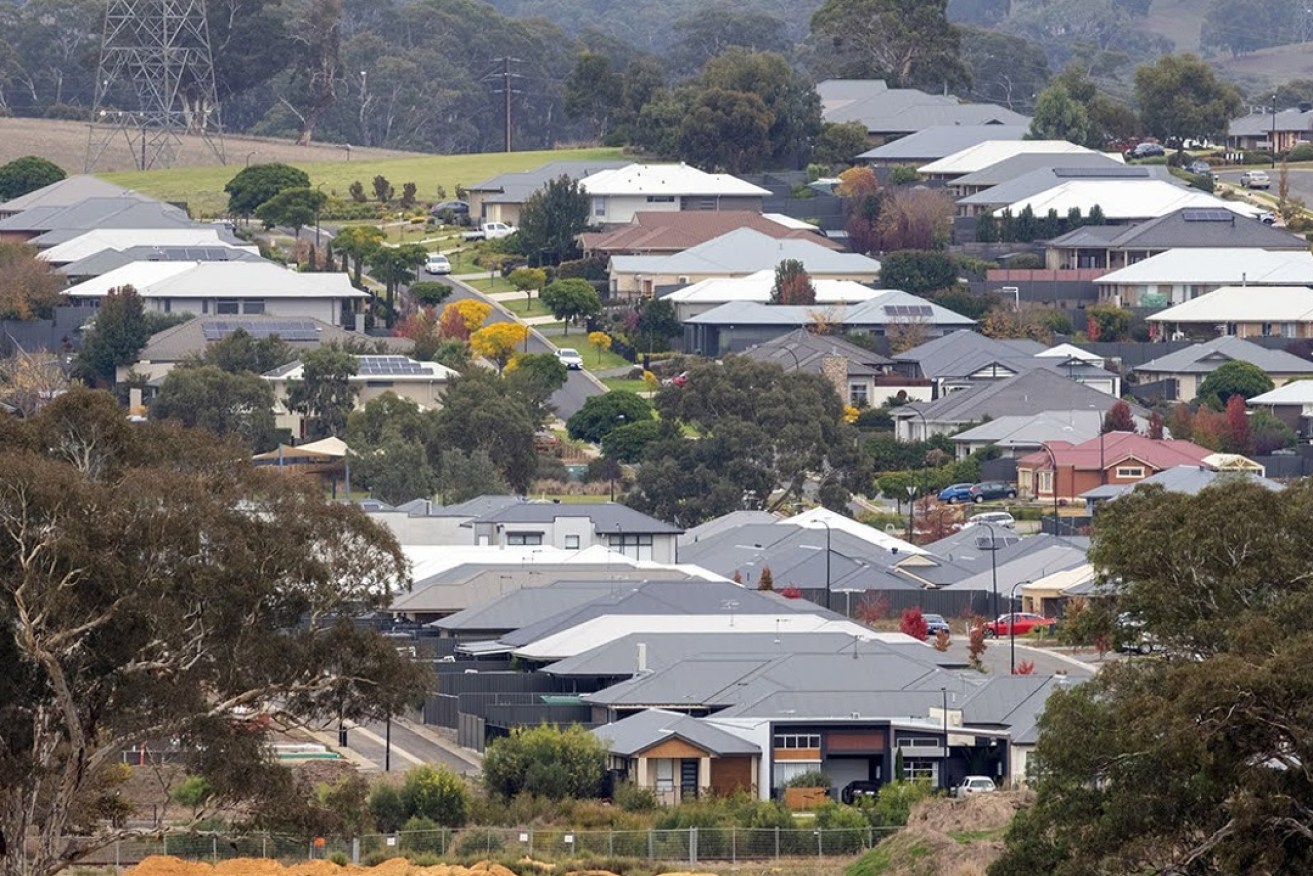No stars for Mount Barker housing decision
Housing affordability is not a one-off consideration that exists just at the point of purchase, argues Ross Womersley, it is ongoing for the life of the home – and energy efficiency is an important part of the equation.

The state government has exempted new housing in Mount Barker growth zones from a national energy efficiency building code coming into effect next year. Photo: Tony Lewis/InDaily
In the midst of a cost of living crisis, difficult choices become even starker. We know that South Australians, particularly those doing it toughest, already choose between paying their rent and essential bills or buying food and medicine.
The Malinauskas Government has campaigned vigorously to champion its actions to reduce the impact of this crisis; however, its backflip on the start date for new energy efficiency standards is a step in completely the wrong direction.
In exempting the Mount Barker growth area from some of the National Construction Code changes until May 2026 (instead of October 2024), Planning Minister Nick Champion paints the decision as a choice between affordable housing and energy efficient choice.
But this is a false choice.
Just a few months ago, Champion defended these standards and even disputed (rightly, we believe) the housing industry’s claims of how much more it would cost to build houses to those standards. In his own words, these standards would “deliver thousands in energy savings and provide cost of living relief for South Australians”.
The above InDaily article crucially highlights that part of the reason for the state government’s decision was that “extreme polarity between the highest daytime temperatures in the middle of summer and lowest overnight temperatures in the winter months make it more challenging for the region to meet the NCC 2022 building fabric requirements (7 star) for energy and condensation”. This should demonstrate why strong energy efficiency standards are essential for new homes in Mount Barker – not be an argument against them.
Between rising energy prices and the increasing impacts of climate change, it is now more important than ever to support households to become more resilient in the face of these challenges.
Better energy efficiency in homes reduces bills, reduces emissions and reduces everyone’s energy costs by reducing pressure on our shared energy infrastructure. It leads to homes that are healthier, more affordable, more comfortable and more resilient to weather extremes – those same, and increasing, extremes already being experienced by residents in Mount Barker.
With this decision, while ostensibly aiming to reduce the upfront cost of homes, the minister instead entrenches long-term high (and increasing) ongoing costs for households in the form of growing gas and electricity bills. This is not a step forward in terms of providing more affordable housing.
Housing affordability is not a one-off consideration that exists just at the point of purchase: can a home really be “affordable” to rent or buy if it is not subsequently affordable to live in?
Poor energy efficiency can result in crippling bills and discomfort, but the impacts can also include potential health problems, particularly during weather extremes
South Australians are already struggling to afford the energy they need to live comfortably in their homes, and many cannot afford it at all. South Australian households already face the highest energy prices and highest levels of energy debt in the country, and prices are only set to increase.
Genuine harm can be – and is being – caused to people living in homes that are not energy efficient.
Poor energy efficiency can result in crippling bills and discomfort, but the impacts can also include potential health problems, particularly during weather extremes. Improving the energy efficiency of homes has been linked to reduced time in hospital, lower blood pressure and fewer days off from work or school. Incredibly, South Australia has a higher rate of deaths from extreme cold than Sweden, with poor heating and insulation and lack of energy efficiency contributing to these deaths.
Mounting evidence points to the clear need for more efficient housing in SA, yet in announcing this decision our state government appears to be saying that the cost of building even moderately-efficient housing is too much for property developers to bear – and it is perfectly reasonable to expect households to bear the lifetime costs of inefficient housing.
Inefficient housing comes at a price: research conducted by Better Renting estimates that more efficient housing in South Australia could save households $2800-$4500 a year on energy costs alone, not to mention some of the health and social costs mentioned above.
Instead of delaying energy efficiency improvements and standards, our government should be investing in them. Improved energy efficiency in a home pays for itself and provides yearly savings on energy bills, as well as other benefits such as more comfortable healthier homes. Even simple heating and cooling efficiency improvements can pay for themselves in as little as one year, and in no more than seven years according to research SACOSS commissioned with Renew.
New research also tells us that not only are the benefits of improving energy efficiency far greater than the costs for households, those benefits flow on to have society-wide impacts.
The South Australian government should be providing leadership and support for all South Australian households to help improve the affordability and efficiency of their homes at this time – not excluding potentially hundreds of people from healthy, affordable housing with the stroke of a pen.
Ross Womersley is the CEO of the South Australian Council of Social Service (SACOSS)




